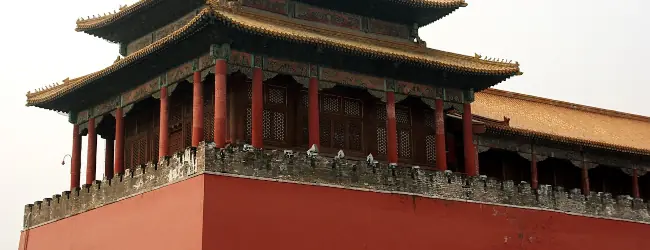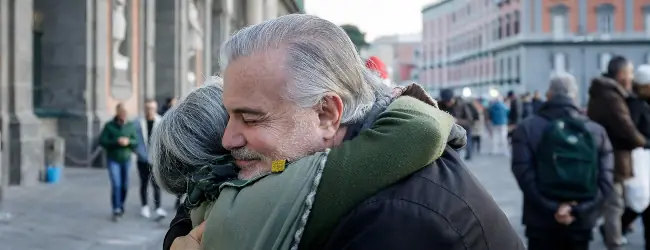Several days ago, one of this blog’s readers asked me about how to get rid of anxiety. Today, I will introduce one way of thinking for highly empathic people.
How to reduce our anxiety
Sometimes, we worry about the future. There seem to be many troubles that hurt us, especially when our environments seem to be getting worse, like in recent times.
We tend to try to avoid losing anything in such a situation. We don’t know how to deal with our environment. Every one of our belongings looks necessary. That often stagnates us in the same situation because we cannot decide anything. That creates more anxiety and exhausts us.
Her anxiety about the future
The person who asked me several days ago also had that trouble. She worried about the environment and the future. She had two children. Her children were in a tiny kindergarten, but the other parents there had different values, including different stances on vaccination.

In addition, the other parents didn’t have empathic natures like her, so she found it hard to get along with them. They believed themselves right, blamed others and stuck to changing others. On the other hand, she was hard to insist on due to her personality.
She wanted to protect her children in her way, but there was a limit to her resources. That caused her anxiety about the future strongly.
One way of thinking
I know there are plenty of methods to reduce our anxieties. I don’t know the most appropriate way because we don’t know what the future holds. Sometimes, the worst way we initially thought brings us a fantastic life. Losing something often tells us more important things.

However, calmness often stops our confusion and provides a solid way of thinking, so I will introduce such a way of thinking today.
To have calmness, the following wisdom might be helpful: understanding the outside and determining the priorities of the inside. I will explain it.
A tale of a second empress
To explain it, I will introduce an old, fictional story. It is a story of an empress’s wisdom.
Once upon a time, there was an empress in an empire. She was the second empress in that empire. She was kind and tender to everyone because she was highly empathic. Everyone liked and respected her.
However, she was involved in trouble after giving birth to her son. It was the problem of the succession to the throne. The first empress tried to kill her and her baby son to make sure that the first empress’s son would be the next emperor.
Surrounded by the first empress and the soldiers with swords towards her, she begged for mercy with tears. However, she was wise enough to understand soon that the first empress was less empathic and did not intend to miss her and her baby.

Then, she modified her attitude immediately. She held her baby and jumped out of the window without hesitation. She knew if she sacrificed her one hand, she could be able to run away from that place. She succeeded in escaping from that danger.
Although she lost her one hand and her status, she was proud because that saved her and her son’s lives. Her and her son’s lives were more important than her one hand.
Decades later, her son became the emperor of the empire. That was the story.
Understanding the outside
That story tells us two lessons: understanding the outside and determining the priorities of the inside.
The former lesson is about understanding the outside appropriately. We can imagine that there are different values we cannot believe in in the world.
We tend to believe our current sense is all. Perhaps the second empress above was also like that. She never expected that the first empress would try to kill her and her baby because it seemed unnecessary to do that. In the empire’s tradition, the first empress’s son would have become emperor naturally. That was an “unbelievable” thing for someone with high empathy like her.

However, there are such unbelievable things in the world, for better or worse. Less empathic people think differently. The less empathic people with status often ruin others to ensure their gain. There are such people in the world.
Of course, it could also apply to a better case. These less empathic people could have no intention of hurting us. They sometimes have just a dirty mouth and want to get along well in their way with us.
Fear is like a dirty curtain around us
We often have to meet unexpected troubles because we cannot know perfectly whether they are harmful, so after we confirm them, we decide where to belong.
If we get confused, it is hard to see that reality because fears blind us. Fear is like a dirty curtain around us. We feel our current environment is all we can cognize. Although we can easily see the new world if we unveil the curtain, we fear touching it because it dirtys our hands. “Dirty our hands” means we are changing our attitudes.

There are both better people and worse people to whom we feel unbelievable in the world. The second empress was wise to understand that. That triggered her to change.
In the case of kindergarten, if we think about the “unbelievable” for good or worse, the other efforts might be an effortless sacrifice.
Determining the priorities of the inside
The latter lesson is determining the priorities of the inside. If we prioritize the important things for us, we can reduce our anxiety about loss because we can find what is more important. In other words, if we realize what we can sacrifice to get something valuable, we can willingly let go of something worthless and get what we want.

In the middle of confusion, we tend to feel, “Everything is important. I don’t want to lose anything.” That stagnates us in the current situation and prevents us from solving it.
The second empress was wise enough to prioritize it. The life of her and her baby is more important than her one hand. If we understand that, we can be willing to make sacrifices to protect the important things, even if we are in a severe situation.
In other words, when the risk appears clear, we can decide and react immediately. We can clear our anxiety better after the risk is real than before. Determining the priorities of the inside could be one of the preparations for it.
Conclusion
When we have anxiety, calmness often stops our confusion and provides a solid way of thinking.
To have calmness, the following wisdom might be helpful: understanding the outside and determining the priorities of the inside.
Although there are plenty of methods to deal with anxiety, and I am also trying to find an efficient way, the above wisdom might help us.
Thank you for reading this article. I hope to see you in the next one.


